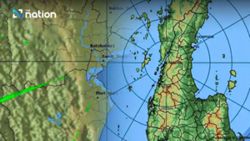
KUCHING: Automotive battery manufacturer ABM Fujiya Bhd (AFujiya) has expanded into the production of enhanced flooded batteries (EFB).
(AFujiya) has expanded into the production of enhanced flooded batteries (EFB).
The commencement in the production of EFB batteries, a key component of an electric vehicle (EV) car aside from a lithium battery, is undertaken by subsidiary Fuya Energy Sdn Bhd at its new battery manufacturing plant in Demak Laut Industrial Park, Kuching.
According to AFujiya, the move into the production of EFB batteries is to embrace the shift of market trends and acceptance of EV cars, and to enable the group to stay competitive in both local and international markets.
EFB batteries are a further development of conventional lead-acid batteries.
EFB are a type of lead-acid battery specially designed for vehicles with an advanced start-stop system, energy recovery and other high-power electrical features.
EFB technology enhances the performance and lifespan of the battery by incorporating design features that increase charge acceptance, cycle durability and resistance to deep discharge.
Fuya Energy is a 60:40 joint-venture company of Amalgamated Batteries Manufacturing (Sarawak) Sdn Bhd (ABM) and China’s battery maker, Jujiang Power Technology Co Ltd (JJ).
ABM is a wholly-owned subsidiary of AFujiya. JJ is engaged in researching, developing, manufacturing and selling of lead-acid starter batteries for vehicles.
In recent years, JJ expanded its production to cover lithium batteries.
JJ has been involved in the construction and set up of Fuya Energy’s new battery plant, and had advanced some RM56.38mil (2019 to 2022) to Fuya Energy to partially finance the plant building and acquisition of machinery.
In December 2024, JJ completed the subscription of 48 million new Fuya Energy shares at RM1 each for RM48mil (representing a 40% stake in Fuya Energy).
Via the share subscription, Fuya Energy managed to offset about 85% of the cash advances it had received from JJ.
According to AFujiya group executive chairman Datuk Seri Tay Chin Kin, the Fuya Energy-JJ tie up is also beneficial to the group as it would allow JJ to provide valuable inputs and feedbacks on the new battery plant’s operations and technical improvements.
This involvement will not only enhance the efficiency of Fuya Energy’s operations but also strengthen the company’s expansion plans, contributing to the future profitability of the Afujiya group.
As Fuya Energy is currently collaborating with i-Cats University to explore opportunities of producing eco-friendly lithium batteries, Tay said JJ can share its knowledge and experience in relation to lithium battery production technology with the university.
The new battery plant has increased its capacity with the recent commercial operation of the fourth production line.
According to Fuya Energy, the company is now procuring its fifth line of production. Besides batteries, the plant also produces accumulators.
“With better economies of scale in production and increasing staff’s expertise in running the machinery of the group’s new batter plant, the group has seen light in generating a gross profit at the group level which mainly due to reduction in operating loss made by the new plant,” AFujiya said when releasing its financial year ended Dec 31, 2024 (FY24) results recently.
In FY24, AFujiya managed to reduce its net loss to RM12.7mil from RM15.2mil in the previous year on the back of higher revenue of RM180.5mil from RM127.5mil.
AFujiya said the shortages of raw materials due to delays in shipment in the second half-2024 had resulted in increasing finance costs which had negatively impacted the group’s bottomline.
The group, which has other manufacturing facilities in Bintawa Industrial Estate in Kuching, also produce batteries for storage and electrical applications.
Most of its products are exported to numerous countries.









































